Climatology
Climatology is the scientific study of climate, including patterns of temperature, humidity, wind, and precipitation over time. It involves understanding long-term weather patterns and how they influence the earth's atmosphere and ecosystems. Climatologists use a variety of tools and methods to study climate, including computer models, satellite data, and historical records.
Key Concepts to Understand
- Climate vs. Weather: It's important to understand the difference between climate and weather. Climate refers to long-term patterns of temperature, humidity, and other atmospheric conditions in a particular region, while weather describes short-term, day-to-day changes in these conditions.
- Factors Influencing Climate: Climatology involves studying the factors that influence climate, such as latitude, altitude, ocean currents, and the distribution of land and water on Earth.
- Climate Change: Understanding how human activities and natural processes can impact long-term climate patterns is a crucial aspect of climatology. This includes studying the causes and potential impacts of global warming and climate change.
- Climate Classification: Climatologists classify different regions of the world into climate zones based on their typical weather patterns. The most widely used classification system is the Köppen climate classification, which divides climates into categories such as tropical, temperate, and polar.
- Impact on Ecosystems and Society: Climatology also explores how climate patterns affect ecosystems, agriculture, water resources, and human societies. Understanding these impacts is essential for addressing challenges related to climate change and adaptation.
Study Tips
- Understand the Basics: Start by understanding the fundamental concepts of climate and weather, including the difference between climate and weather, the factors influencing climate, and the basic mechanisms of climate change.
- Use Visual Aids: Diagrams, maps, and infographics can help you visualize climate patterns, climate zones, and the distribution of factors influencing climate. These visual aids can aid in understanding and memorization.
- Explore Case Studies: Look for case studies that illustrate the impacts of climate on specific regions, ecosystems, or human societies. Understanding real-world examples can help you grasp the practical implications of climatology.
- Stay Updated: Follow current events and scientific research related to climate change and climatology. This will help you grasp the latest developments and controversies in the field.
- Practice with Data: Work with climate data sets to analyze and interpret trends in temperature, precipitation, and other climate variables. Hands-on experience with data analysis can deepen your understanding of climatology.
Conclusion
By studying climatology, we gain valuable insights into the Earth's climate system, its impacts on the environment and society, and the challenges posed by climate change. Understanding the principles of climatology is essential for making informed decisions about environmental policies, resource management, and sustainable development.
.◂Science Worksheets and Study Guides Seventh Grade. Cell Reproduction
Study Guide Cell Reproduction
Cell Reproduction  Activity Lesson
Activity Lesson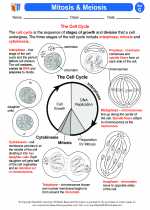 Mitosis & Meiosis
Mitosis & Meiosis  Worksheet/Answer key
Worksheet/Answer key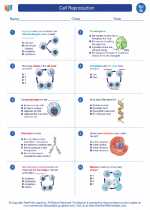 Cell Reproduction
Cell Reproduction  Worksheet/Answer key
Worksheet/Answer key Cell Reproduction
Cell Reproduction  Worksheet/Answer key
Worksheet/Answer key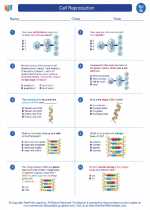 Cell Reproduction
Cell Reproduction  Vocabulary/Answer key
Vocabulary/Answer key Cell Reproduction
Cell Reproduction  Vocabulary/Answer key
Vocabulary/Answer key Cell Reproduction
Cell Reproduction  Vocabulary/Answer key
Vocabulary/Answer key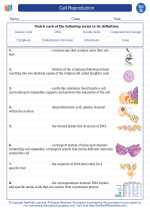 Cell Reproduction
Cell Reproduction  Vocabulary/Answer key
Vocabulary/Answer key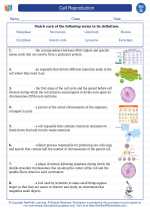 Cell Reproduction
Cell Reproduction  Vocabulary/Answer key
Vocabulary/Answer key Cell Reproduction
Cell Reproduction  Vocabulary/Answer key
Vocabulary/Answer key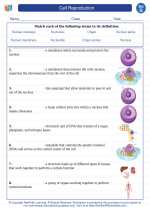 Cell Reproduction
Cell Reproduction  Vocabulary/Answer key
Vocabulary/Answer key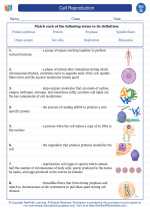 Cell Reproduction
Cell Reproduction  Vocabulary/Answer key
Vocabulary/Answer key Cell Reproduction
Cell Reproduction 

 Activity Lesson
Activity Lesson
 Worksheet/Answer key
Worksheet/Answer key
 Worksheet/Answer key
Worksheet/Answer key
 Worksheet/Answer key
Worksheet/Answer key
 Vocabulary/Answer key
Vocabulary/Answer key
 Vocabulary/Answer key
Vocabulary/Answer key
 Vocabulary/Answer key
Vocabulary/Answer key
 Vocabulary/Answer key
Vocabulary/Answer key
 Vocabulary/Answer key
Vocabulary/Answer key
 Vocabulary/Answer key
Vocabulary/Answer key
 Vocabulary/Answer key
Vocabulary/Answer key
 Vocabulary/Answer key
Vocabulary/Answer key

The resources above cover the following skills:
LIFE SCIENCE
From Molecules to Organisms: Structures and Processes
Gather and synthesize information to explain how prokaryotic and eukaryotic cells differ in structure and function, including the methods of asexual and sexual reproduction.